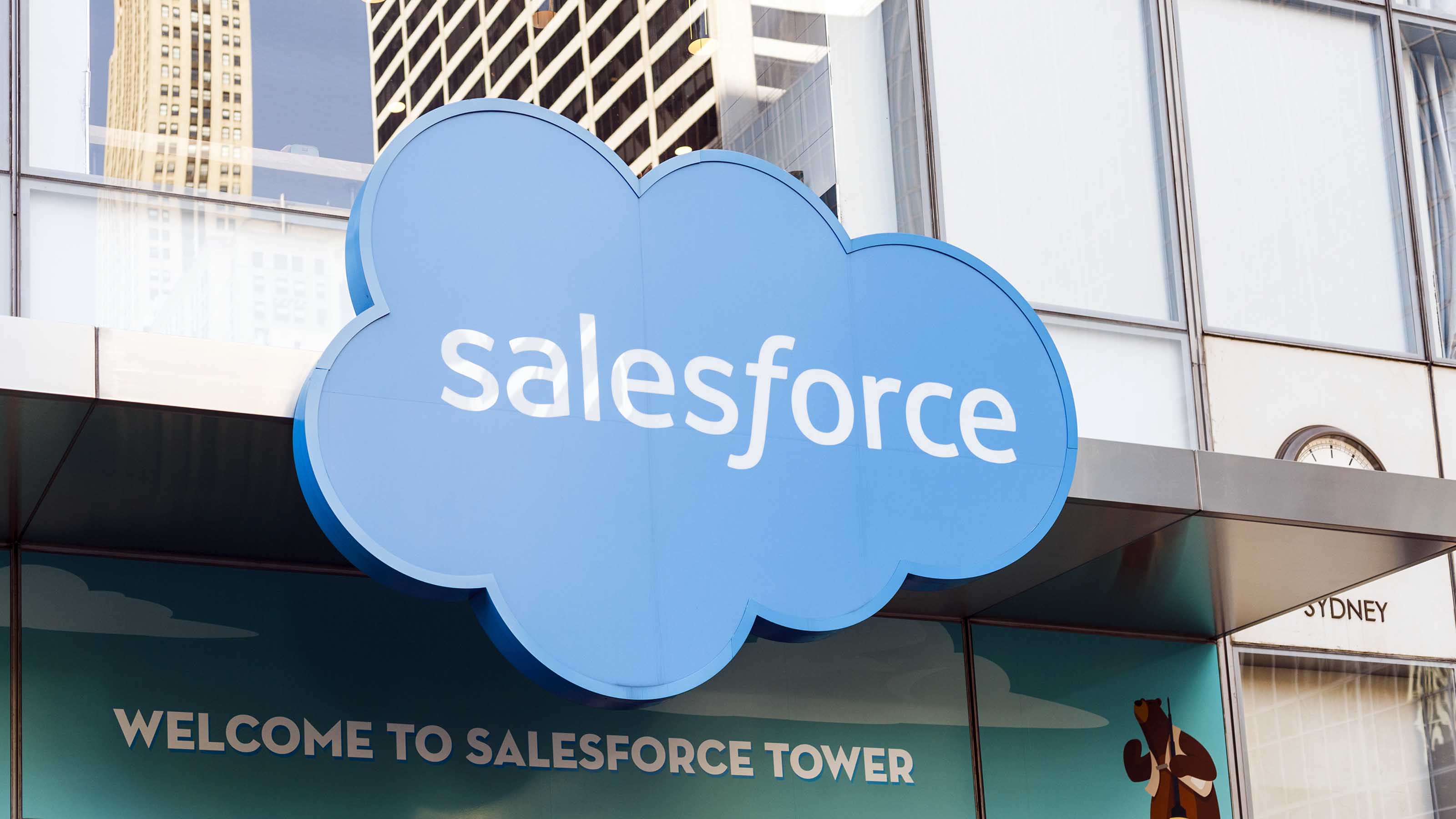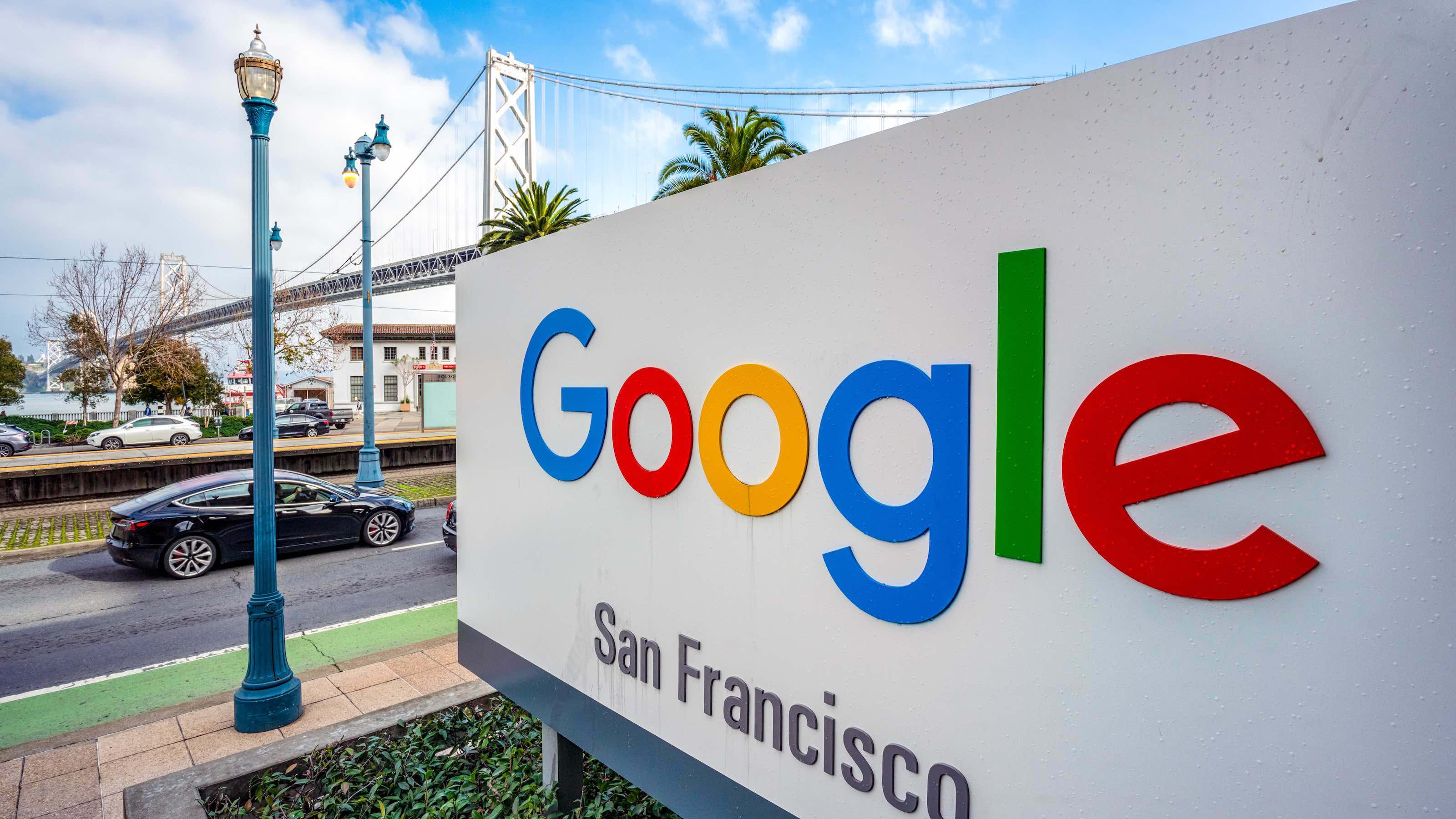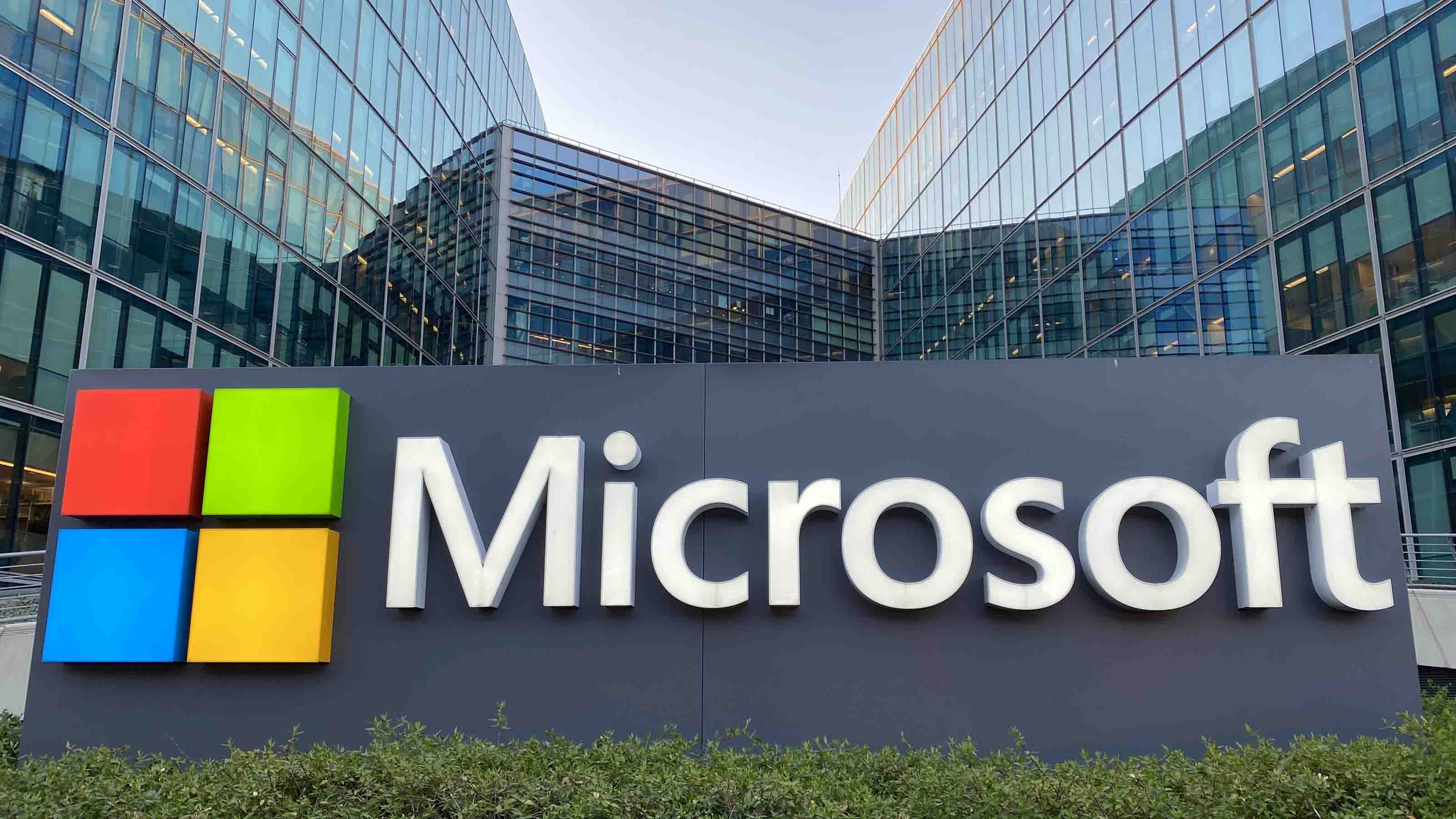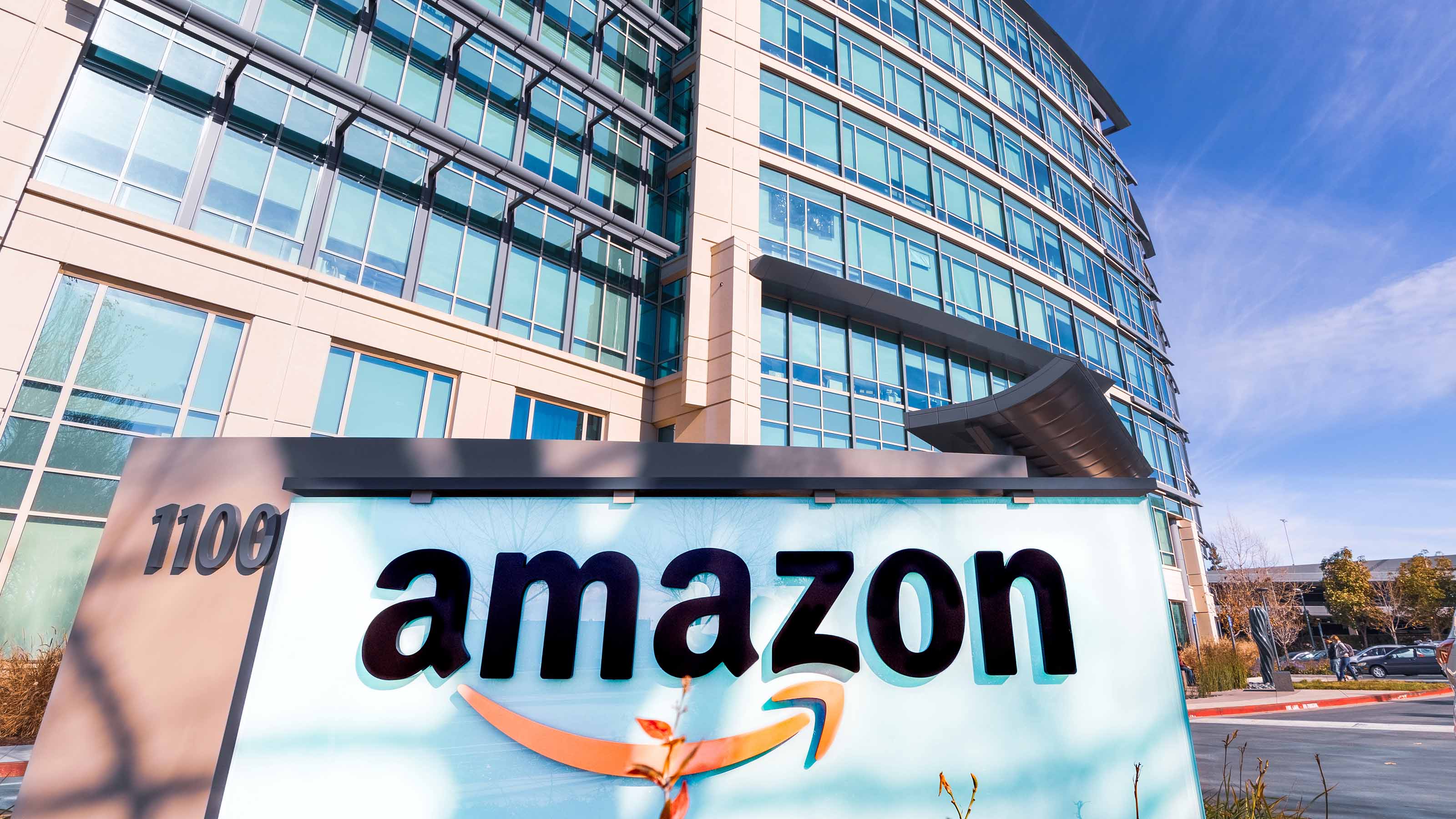5 Mega-Cap Stocks Analysts Love the Most
Stocks with market values of at least $200 billion are where the really big money places its bets. These mega caps are Wall Street's favorites.


Profit and prosper with the best of Kiplinger's advice on investing, taxes, retirement, personal finance and much more. Delivered daily. Enter your email in the box and click Sign Me Up.
You are now subscribed
Your newsletter sign-up was successful
Want to add more newsletters?

Delivered daily
Kiplinger Today
Profit and prosper with the best of Kiplinger's advice on investing, taxes, retirement, personal finance and much more delivered daily. Smart money moves start here.

Sent five days a week
Kiplinger A Step Ahead
Get practical help to make better financial decisions in your everyday life, from spending to savings on top deals.

Delivered daily
Kiplinger Closing Bell
Get today's biggest financial and investing headlines delivered to your inbox every day the U.S. stock market is open.

Sent twice a week
Kiplinger Adviser Intel
Financial pros across the country share best practices and fresh tactics to preserve and grow your wealth.

Delivered weekly
Kiplinger Tax Tips
Trim your federal and state tax bills with practical tax-planning and tax-cutting strategies.

Sent twice a week
Kiplinger Retirement Tips
Your twice-a-week guide to planning and enjoying a financially secure and richly rewarding retirement

Sent bimonthly.
Kiplinger Adviser Angle
Insights for advisers, wealth managers and other financial professionals.

Sent twice a week
Kiplinger Investing Weekly
Your twice-a-week roundup of promising stocks, funds, companies and industries you should consider, ones you should avoid, and why.

Sent weekly for six weeks
Kiplinger Invest for Retirement
Your step-by-step six-part series on how to invest for retirement, from devising a successful strategy to exactly which investments to choose.
In a year when high-flying meme stocks have grabbed more than their fair share of headlines, investors would do well to remember that what really moves the market are mega-cap stocks.
After all, the S&P 500 is not a social media popularity contest. It's an index weighted by market capitalization. Size matters. The biggest companies by market value – Apple (AAPL), Microsoft (MSFT) – have far more impact on our collective equity wealth than whatever stock du jour is being debated on Reddit.
Mega-cap stocks – or roughly speaking, equities with market values of at least $200 billion – are where the really big money places its bets. Billionaires, hedge funds and other institutional investors love mega-cap stocks. For one thing, mega caps are proven businesses, and leaders in their respective industries. Secondly, mega caps' massive liquidity allows big investors to buy or sell large positions with relative ease.
Mega caps also happen to be some of the country's best-known companies – and analysts' favorite stocks.
With that in mind, we decided to find Wall Street's favorite mega-cap stocks to buy now. Here's how the process works: S&P Global Market Intelligence surveys analysts' stock ratings and scores them on a five-point scale, where 1.0 equals Strong Buy and 5.0 means Strong Sell. Any score of 2.5 or lower means that analysts, on average, rate the stock a Buy. The closer the score gets to 1.0, the stronger the Buy call.
Our screen left us with these five mega-cap stocks, all of which get rare Strong Buy consensus recommendations from Wall Street analysts.
Share prices and other data are as of Nov. 4, courtesy of S&P Global Market Intelligence and YCharts. Dividend yields are calculated by annualizing the most recent payout and dividing by the share price. Companies are listed by strength of analysts' consensus recommendation, from lowest to highest.

5. Thermo Fisher Scientific
- Market value: $251.7 billion
- Dividend yield: 0.2%
- Analysts' consensus recommendation: 1.50 (Strong Buy)
Thermo Fisher Scientific (TMO, $639.76) is often called the "Amazon of the healthcare industry" because of the mega-cap stock’s wide-ranging portfolio of life sciences products, analytics instruments and laboratory tools.
As such, Thermo Fisher has been highly active in the fight against COVID-19, which in turn has raised its profile and investor interest. Indeed, TMO stock is up about 37% for the year-to-date. That leads the S&P 500 by about 12 percentage points.
But there's more to TMO beyond the boost it's getting from the fight against COVID-19, bulls note.
"The company is investing its substantial cash flow in product development, capacity expansions and acquisitions," writes Argus Research analyst David Toung, who rates shares at Buy. "We believe that these investments, along with strength in the base business (excluding COVID-19 testing revenue), will drive growth on the other side of the pandemic."
Of the 22 analysts issuing opinions on the stock, 15 rate TMO at Strong Buy, four say Buy, two rate it at Hold and one calls it a Sell, according to S&P Global Market Intelligence. They expect the company to generate average annual earnings per share (EPS) growth of 13.1% over the next three to five years.

4. Salesforce.com
- Market value: $301.6 billion
- Dividend yield: N/A
- Analysts' consensus recommendation: 1.49 (Strong Buy)
The Street adores Salesforce.com (CRM, $308.04). The software-as-a-service juggernaut is also one of the hedge fund industry's favorite stocks, and it's beloved by billionaire investors too.
Shares in the Dow stock are up more than 38% year-to-date, and the Street says they've still got plenty of upside left.
After all, Salesforce, which provides customer relationship management software to enterprise customers, was essentially providing cloud-based services before they were cool. That early-mover advantage continues to benefit CRM today.
Deutsche Bank analyst Brad Zelnick initiated coverage of the company at Buy in November. Among other points, the analyst calls out the market's failure to properly value CRM's 2020 acquisition of communications platform Slack.
"Even with sentiment recovering since announcing the $28 billion Slack deal last year, we believe the market under-appreciates the long-term opportunity in front office applications, Salesforce’s leadership of the category, and the scale at which it is succeeding," Zelnick writes.
He's hardly a lone voice in the wilderness. Thirty-two analysts rate CRM at Strong Buy, 10 call it a Buy and seven have it at Hold. Collectively they forecast the mega-cap stock to deliver average annual EPS growth of 23.3% over the next three to five years.

3. Alphabet
- Market value: $1.97 trillion
- Dividend yield: N/A
- Analysts' consensus recommendation: 1.35 (Strong Buy)
Google parent Alphabet (GOOGL, $2,973.66) is another mega-cap stock that hedge funds, billionaires and Wall Street analysts lavish with praise.
That's due in large part to the company's domination in search and other web services. At its foundation, Google forms a duopoly with Facebook parent Meta (FB) in the relentlessly growing market for digital advertising. Combined, the two companies will claim roughly 54% of all global digital ad revenue in 2021, according to eMarketer.
"These companies [also including Apple, Microsoft and Amazon.com] have come to dominate new developments in mobile, public cloud and big data analytics, as well as emerging areas such as artificial intelligence, virtual/augmented reality and even quantum computing" says Argus Research analyst Joseph Bonner (Buy).
Importantly, Alphabet's multiple areas of interest belie criticisms that it's “a ‘Johnny One Note' for its dependence on digital advertising," the analyst adds.
Alphabet's earnings power is all the more impressive given how massive the company has become. GOOGL is knocking on the door of $2 trillion in market value, and the Street believes it can still generate average annual EPS growth of 22% over the next three to five years.
As such, it's really no surprise that of the 46 analysts issuing opinions on GOOGL tracked by S&P Global Market Intelligence, 31 rate it at Strong Buy and 14 call it a Buy, while a mere one pro says Hold.

2. Microsoft
- Market value: $2.53 trillion
- Dividend yield: 0.7%
- Analysts' consensus recommendation: 1.34 (Strong Buy)
Only two of the Dow Jones Industrial Average's 30 stocks currently earn a consensus Strong Buy recommendation from Wall Street analysts: the aforementioned Salesforce.com, and mega-cap stock Microsoft (MSFT, $336.44).
But MSFT outpaces CRM in this little race in a big way: Of the 41 analysts issuing opinions on Microsoft tracked by S&P Global Market Intelligence, 29 rate it at Strong Buy, 10 say Buy and two call it a Hold.
The Street's overwhelmingly bullish view on MSFT stock is predicated on Microsoft's overwhelming success in cloud services, with products such as Azure and Office 365 fueling accelerated growth.
"With workforces expected to have a heavy remote focus, we believe the cloud shift is just beginning to take its next stage of growth globally," says Wedbush analyst Daniel Ives (Outperform). "We believe this disproportionately benefits cloud stalwart MSFT, as it is so well-positioned in its core enterprise backyard to further deploy its Azure/Office 365 as the cloud backbone and artery."
As with Alphabet, the law of large numbers doesn't seem to apply to MSFT. Consider that Microsoft boasts a market value in excess of $2.5 trillion, yet analysts still expect average annual EPS growth of 15.4% over the next three to five years.

1. Amazon.com
- Market value: $1.76 trillion
- Dividend yield: N/A
- Analysts' consensus recommendation: 1.27 (Strong Buy)
Analysts' hands-down favorite mega-cap stock is Amazon.com (AMZN, $3,477.00).
True, the company coughed up some disappointing third-quarter results. AMZN's earnings and revenue missed Street estimates and it issued downbeat guidance to boot.
But while the market might not be too hot on AMZN right now, analysts could not be more bullish. After all, how many $1.76 trillion companies are forecast to deliver average annual EPS growth of almost 27% over the next three to five years?
True, COVID-19, supply-chain snafus, rising labor and input costs and other headwinds are serious near-term challenges for Amazon, analysts say. However, the long-term bull case remains intact, and it's simply too compelling to ignore.
"Amazon.com is one of the few large-cap companies benefiting from the secular shift to e-commerce," writes Oppenheimer analyst Jason Helfstein, who rates AMZN at Outperform (Buy). "The company continues to gain share of global e-commerce with its deep product selection, low-cost express delivery through its Prime program, and breakthrough success of Kindle, Prime Video and Amazon Music. Furthermore, AMZN's Web Services segment is now the global leader in cloud computing and has significant value."
Oppenheimer's view isn't just the majority opinion on the Street; it's the only opinion on the Street. Thirty-six analysts rate AMZN at Strong Buy and 13 say Buy. No Holds, no Sells.
Profit and prosper with the best of Kiplinger's advice on investing, taxes, retirement, personal finance and much more. Delivered daily. Enter your email in the box and click Sign Me Up.

Dan Burrows is Kiplinger's senior investing writer, having joined the publication full time in 2016.
A long-time financial journalist, Dan is a veteran of MarketWatch, CBS MoneyWatch, SmartMoney, InvestorPlace, DailyFinance and other tier 1 national publications. He has written for The Wall Street Journal, Bloomberg and Consumer Reports and his stories have appeared in the New York Daily News, the San Jose Mercury News and Investor's Business Daily, among many other outlets. As a senior writer at AOL's DailyFinance, Dan reported market news from the floor of the New York Stock Exchange.
Once upon a time – before his days as a financial reporter and assistant financial editor at legendary fashion trade paper Women's Wear Daily – Dan worked for Spy magazine, scribbled away at Time Inc. and contributed to Maxim magazine back when lad mags were a thing. He's also written for Esquire magazine's Dubious Achievements Awards.
In his current role at Kiplinger, Dan writes about markets and macroeconomics.
Dan holds a bachelor's degree from Oberlin College and a master's degree from Columbia University.
Disclosure: Dan does not trade individual stocks or securities. He is eternally long the U.S equity market, primarily through tax-advantaged accounts.
-
 Ask the Tax Editor: Federal Income Tax Deductions
Ask the Tax Editor: Federal Income Tax DeductionsAsk the Editor In this week's Ask the Editor Q&A, Joy Taylor answers questions on federal income tax deductions
-
 States With No-Fault Car Insurance Laws (and How No-Fault Car Insurance Works)
States With No-Fault Car Insurance Laws (and How No-Fault Car Insurance Works)A breakdown of the confusing rules around no-fault car insurance in every state where it exists.
-
 7 Frugal Habits to Keep Even When You're Rich
7 Frugal Habits to Keep Even When You're RichSome frugal habits are worth it, no matter what tax bracket you're in.
-
 Stocks Sink With Alphabet, Bitcoin: Stock Market Today
Stocks Sink With Alphabet, Bitcoin: Stock Market TodayA dismal round of jobs data did little to lift sentiment on Thursday.
-
 Dow Leads in Mixed Session on Amgen Earnings: Stock Market Today
Dow Leads in Mixed Session on Amgen Earnings: Stock Market TodayThe rest of Wall Street struggled as Advanced Micro Devices earnings caused a chip-stock sell-off.
-
 Nasdaq Slides 1.4% on Big Tech Questions: Stock Market Today
Nasdaq Slides 1.4% on Big Tech Questions: Stock Market TodayPalantir Technologies proves at least one publicly traded company can spend a lot of money on AI and make a lot of money on AI.
-
 Fed Vibes Lift Stocks, Dow Up 515 Points: Stock Market Today
Fed Vibes Lift Stocks, Dow Up 515 Points: Stock Market TodayIncoming economic data, including the January jobs report, has been delayed again by another federal government shutdown.
-
 Stocks Close Down as Gold, Silver Spiral: Stock Market Today
Stocks Close Down as Gold, Silver Spiral: Stock Market TodayA "long-overdue correction" temporarily halted a massive rally in gold and silver, while the Dow took a hit from negative reactions to blue-chip earnings.
-
 Nasdaq Drops 172 Points on MSFT AI Spend: Stock Market Today
Nasdaq Drops 172 Points on MSFT AI Spend: Stock Market TodayMicrosoft, Meta Platforms and a mid-cap energy stock have a lot to say about the state of the AI revolution today.
-
 S&P 500 Tops 7,000, Fed Pauses Rate Cuts: Stock Market Today
S&P 500 Tops 7,000, Fed Pauses Rate Cuts: Stock Market TodayInvestors, traders and speculators will probably have to wait until after Jerome Powell steps down for the next Fed rate cut.
-
 S&P 500 Hits New High Before Big Tech Earnings, Fed: Stock Market Today
S&P 500 Hits New High Before Big Tech Earnings, Fed: Stock Market TodayThe tech-heavy Nasdaq also shone in Tuesday's session, while UnitedHealth dragged on the blue-chip Dow Jones Industrial Average.
